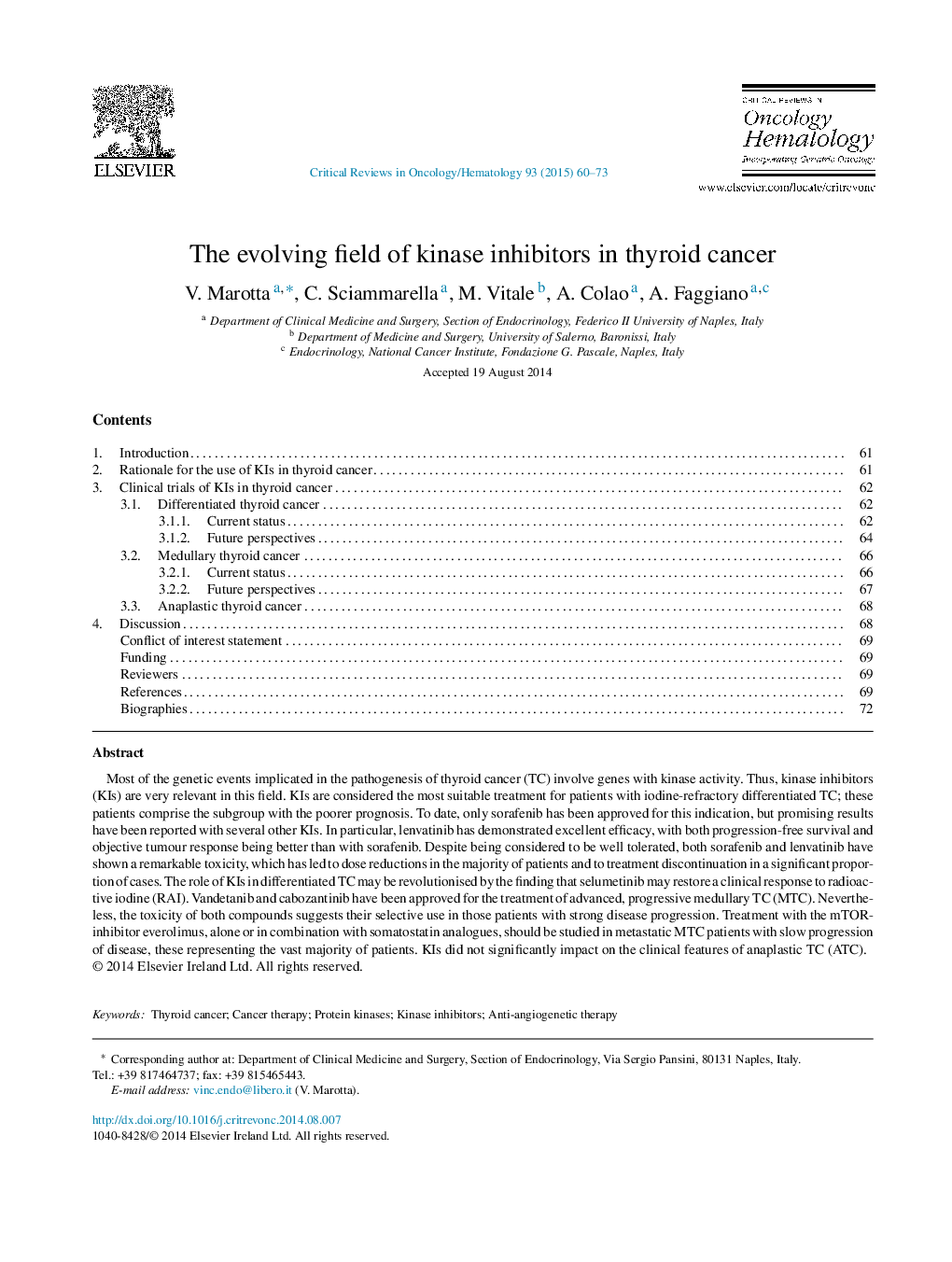| کد مقاله | کد نشریه | سال انتشار | مقاله انگلیسی | نسخه تمام متن |
|---|---|---|---|---|
| 3328654 | 1212330 | 2015 | 14 صفحه PDF | دانلود رایگان |
• Genes with kinase activity are implicated in the pathogenesis of thyroid cancer. This provides the rationale for using KIs.
• KIs are the most suitable treatment for RAI-refractory DTC. To date, only sorafenib has been approved for this indication.
• Vandetanib and cabozantinib have been approved for advanced MTC, but their toxicity suggests a selective use.
• KIs did not impact on clinics of ATC.
Most of the genetic events implicated in the pathogenesis of thyroid cancer (TC) involve genes with kinase activity. Thus, kinase inhibitors (KIs) are very relevant in this field. KIs are considered the most suitable treatment for patients with iodine-refractory differentiated TC; these patients comprise the subgroup with the poorer prognosis. To date, only sorafenib has been approved for this indication, but promising results have been reported with several other KIs. In particular, lenvatinib has demonstrated excellent efficacy, with both progression-free survival and objective tumour response being better than with sorafenib. Despite being considered to be well tolerated, both sorafenib and lenvatinib have shown a remarkable toxicity, which has led to dose reductions in the majority of patients and to treatment discontinuation in a significant proportion of cases. The role of KIs in differentiated TC may be revolutionised by the finding that selumetinib may restore a clinical response to radioactive iodine (RAI). Vandetanib and cabozantinib have been approved for the treatment of advanced, progressive medullary TC (MTC). Nevertheless, the toxicity of both compounds suggests their selective use in those patients with strong disease progression. Treatment with the mTOR-inhibitor everolimus, alone or in combination with somatostatin analogues, should be studied in metastatic MTC patients with slow progression of disease, these representing the vast majority of patients. KIs did not significantly impact on the clinical features of anaplastic TC (ATC).
Journal: Critical Reviews in Oncology/Hematology - Volume 93, Issue 1, January 2015, Pages 60–73
